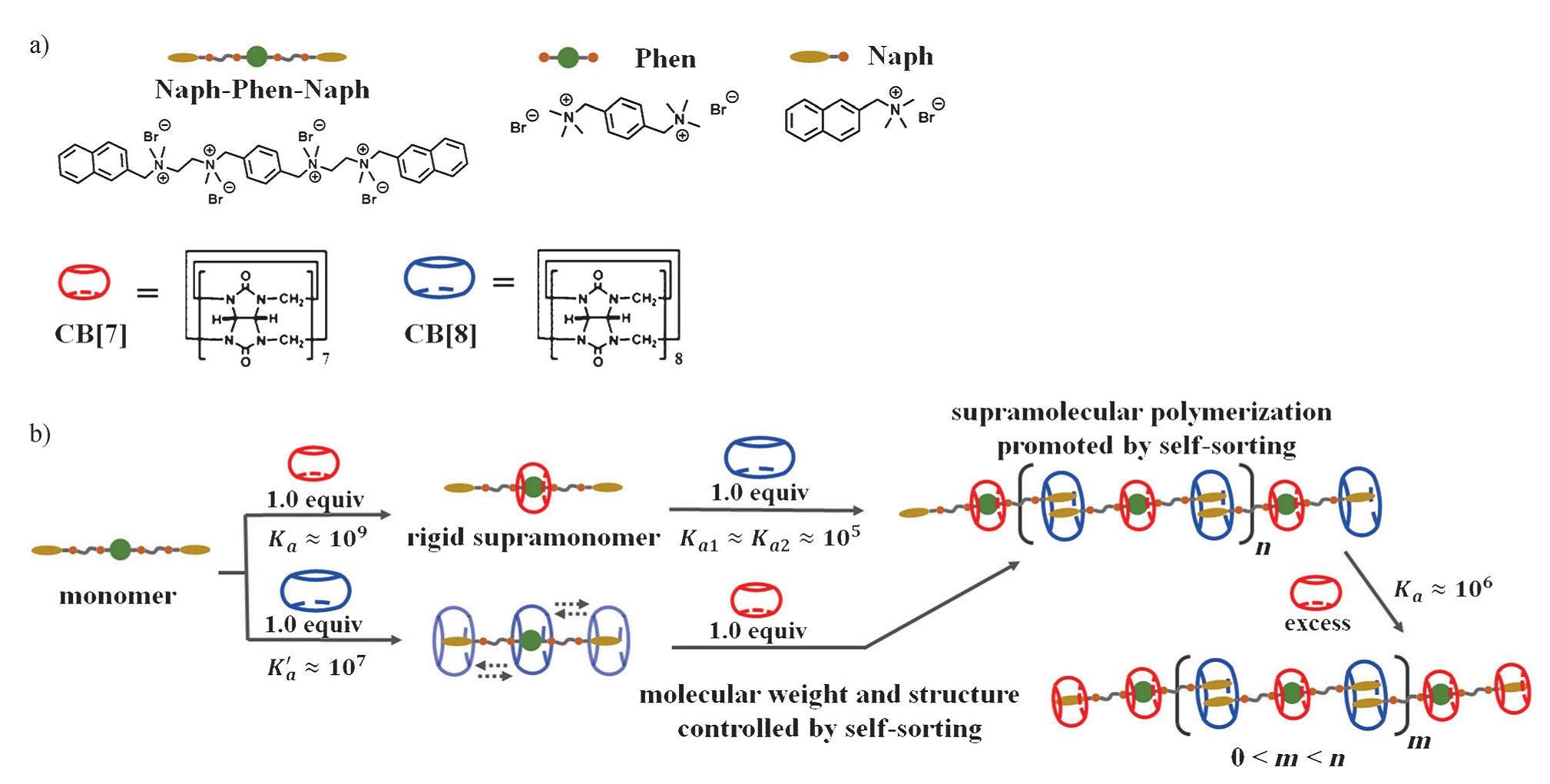Supramolecular polymers are of great interest because the nature of the noncovalent interactions holding them together imparts dynamic, reversible, and degradable characteristics to these materials. Although significant advances have taken place, it remains a challenge in the field to realize control over supramolecular polymerization.
Recently, Prof. Xi Zhang’s group has developed a new method of supramolecular polymerization promoted and controlled through self-sorting. The bifunctional monomer containing p-phenylene and naphthalene moieties is prepared. Supramolecular polymerization is promoted by selective recognition between the p-phenylene group with cucurbit[7]uril (CB[7]) and 2:1 complexation of the naphthalene groups with cucurbit[8]uril (CB[8]), and can be controlled by tuning the content of CB[7].
Similar methodology may be employed to fabricate supramolecular polymers not only exhibiting linear topology, but also alternating, branched and hybrid structures. Additionally, different self-sorting systems based on host-guest or other reversible chemistries could be utilized for supramolecular polymerization in a controlled manner. This research will enrich the field of supramolecular polymers with important advances towards the realization of molecular weight and structural control.
This work was accomplished by the cooperation with Dr. Oren A. Scherman from University of Cambridge and has been published on Angew. Chem. Int. Ed., 2014, DOI: 10.1002/anie.201402817.
